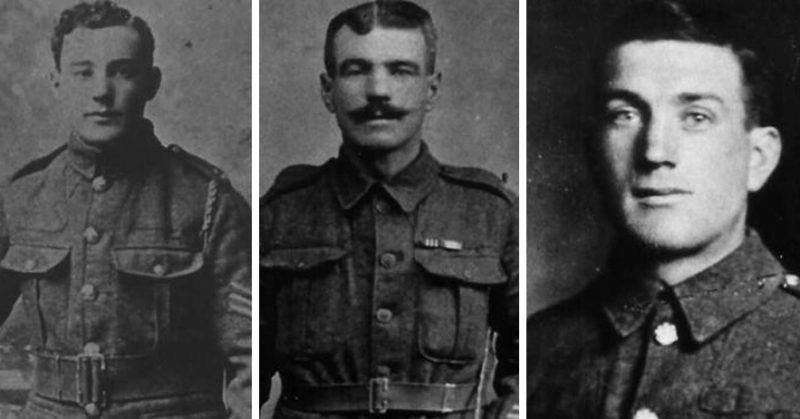The Lynn family was similar to so many families in that they suffered tremendous losses during the First World War. Three of their sons were killed in the line of duty before a desperate bid was launched to get the fourth son home safely to his parents (my great grandparents). With their children at the time, they resided on a farm in Coalisland in County Tyrone.
After the First World War started each of their four sons went to fight. It was the last time the Lynns would be together as a family. In 1915, tragedy struck for the first time when their son Robert was on the frontlines at Ypres. His nephew (my great uncle), Alan March confirmed that Robert was a driver in the Royal Field Artillery. He said, “That was reckoned to be probably the most dangerous job on the western front because he was open to rifle fire from snipers and artillery.” That is what ultimately killed him.
After his death, the parents got a letter that started with ‘Dear Mr. and Mrs. Lynn, I regret to inform you…’ Eventually, they would receive three more letters just like that. The youngest son was William, and he was the next one to die. At only 21, he was killed in the Battle of the Somme. He served as a sergeant in the First Battalion known as the Royal Irish Fusiliers. Alan explained, “William went out to get a stretcher to bring home an injured colleague and was killed by a shell. One of William’s comrades wrote ‘his father and mother would have the consolation he died a hero’s death.'”
Just one month later, the third son was killed. Private John Lynn of the First Battalion, the Royal Inniskilling Fusiliers, was killed in a gas attack on the trenches of Ypres. There were 48 other soldiers who died that day. According to Alan, John was buried a couple of miles from where his brother Robert was laid to rest.
The oldest son James Lynn was the only one left alive. In 1917, the War Ministry sent him home to Coalisland. It seems they felt the Lynn family had sacrificed more than enough, but James did not remain home for long. Alan speculates that soldiering could have been in his blood, or that Coalisland was too boring after the war experiences. He re-enlisted into the military.
They sent James to Palestine and in 1920 he became the fourth son in the Lynn family to die during active military service. James wrote a moving letter to his dear mother that was found after he died.
Alan said to the BBC, “Sergeant James Lynn knew that he was not a well man.” He wrote ‘Sergeant James Lynn, last of the line’ and that indeed was the last of line, for there were no more Lynns.” There were no men in the family left to carry on the surname, but this heroic family has not been forgotten.
My mother’s first name is Lynn, and it is the middle name of a bunch of my relatives. Each of the sons is buried in different graveyards, but family members made it a point to lay poppies at their headstones. Visiting the graves is always an emotional time.
